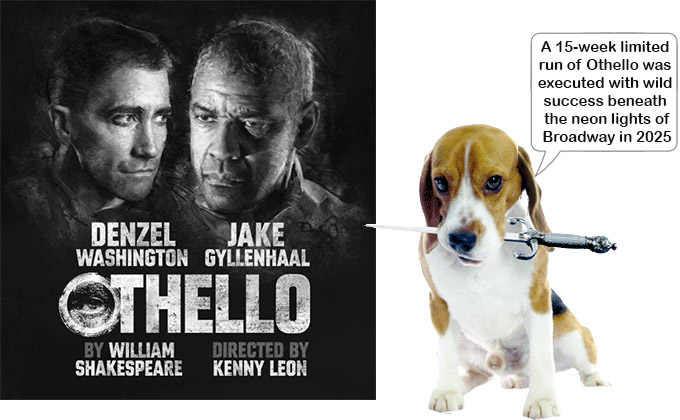January 18, 1604: King James announces that he will commission an English translation of the Bible.
January 16, 1605: Miguel de Cervantes’ Don Quixote is published. It is considered to be the first modern novel. Every sophisticated storytelling device in use today made its initial debut in Don Quixote.
February 28, 1605: A 41-year-old man of Italy named Galileo publishes an astronomical text that attacks the idea that the Earth is at the center of the universe and the sun revolves around it. The book is written as an imagined conversation between a pair of Paduan peasants who refer to Kepler’s Supernova as “a very bright star which shines at night like an owl’s eye and can still be seen in the morning when it is time to prune the grapevines.”
November 1, 1605: The debut of Shakespeare’s Othello is performed for King James in the banqueting hall at Whitehall Palace in London.
Meanwhile, a group of English Roman Catholics who are unhappy with the policies of King James stack 36 barrels of gunpowder under the floor of the Palace of Westminster. Their plan is to blow up the king, his family, and the entire legislature on November 5, 1605.
The Gunpowder Plot is discovered by a night watchman just a few hours before Guy Fawkes was to have lit the fuse.
Shakespeare begins writing a new play about a ruler who gives enormous power to those who flatter him, but whose madness goes unnoticed by society. “King Lear” is regularly cited as one of the greatest works of literature ever written.
May 13, 1607: One hundred and four English men and boys arrive in North America to start a settlement in what is now Virginia. They name it “Jamestown” after King James. The American Experiment is begun.
All of this happens within a span of just 28 months. Flash forward…
May 2, 1611: The English Bible that will become known as the King James Version is published.
April 23, 1616: Shakespeare and Cervantes – the great voices of England and Spain – die just a few hours apart. Galileo continues until 1642.
July 4, 1776: The 13 colonies of the American Experiment light a fuse of their own and the Revolutionary War engulfs the Atlantic coast.
November 19, 1863: Abraham Lincoln looks out over a field of 6,000 acres. He says, “Four score and seven years ago our fathers brought forth on this continent a new nation, conceived in liberty, and dedicated to the proposition that all men are created equal. Now we are engaged in a great civil war, testing whether that nation, or any nation so conceived and so dedicated, can long endure.”
Lincoln ends his speech one minute later by sharing his hope that “government of the people, by the people, for the people, shall not perish from the earth.”
Lincoln’s fear is that “the people” will not remain firmly enough united to resist empowering a strongman like crazy King George, the tyrant that America had escaped just 87 years earlier.
Five-and-a-half generations after Lincoln’s assassination, the American Experiment continues.
